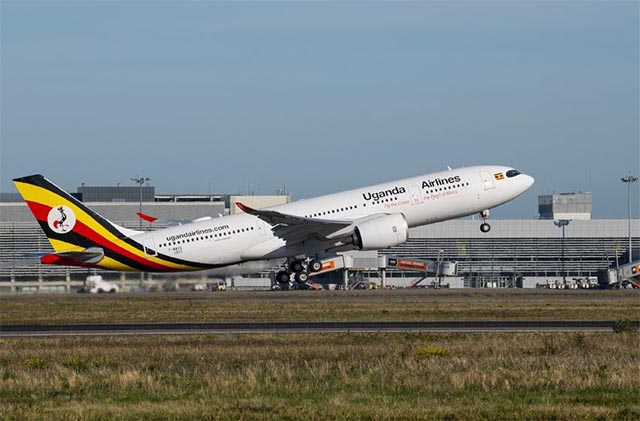
Kampala, Uganda | THE INDEPENDENT | Uganda Airlines is “moving closer to profitability” as revenue targets are in sight, but focus is on network and fleet expansion, according to management.
The year 2024 has been busy for the five-year old flier opening up new routes both domestic and international, including Abuja, Lusaka and Harare, as well as Dubai and Mumbai.
These efforts are part of the company’s vision of increasing connectivity infrastructure as a government agency, but also comes amidst similar developments by other regional and international players, taking advantage of increasing demand.
According to the latest report by the International Air Transport Association (IATA), the month of September recorded the highest ever passenger demand with a growth of 7.1 percent, while demand for Africa jumped 11.9 percent from the same month of last year.
Uganda Airlines is readying itself to take a piece of this growth, according the management.
The company currently owns six aircraft comprising four CRJ900LRs and two Airbus A330-800neos. In May it added another 150-capacity A320 on a wet lease arrangement for six year.
Shakila Rahim Lamar, head of communications said after the six months period they would receive another similar aircraft from the same South African lessor on similar terms.
A “wet lease” is an agreement where the leasing company provides an aircraft with flight crew, maintenance and insurance, usually for a short period.
Adedayo Olawuyi, Chief the Commercial Officer, says that the airline is moving closer to profitability, and that in December last year, achieved 83 percent of its target revenues.
According to experts, while international routes enhance the connectivity of a country, and efficient route network is vital for younger and smaller fliers like Uganda Airlines because the regional routes feed into the international ones.
The airline flies to 16 destinations in 13 countries and near-future plans include additions of regional and international routes like Accra, Cape Town, Jeddah, London and Riyadh, according to Olawuyi.
Speaking on the sidelines of the recent Aviation Development (AviaDev) Africa conference, Olawuyi revealed plans to add another four Boeing 787 Dreamliners and four A320neos, which will bring the total fleet to 13 by 2030.
The plan also involves acquisition of a Boeing 737-800 Freighter for specifically cargo operations.
African airlines saw a 11.9 per cent jump in demand in September compared to the previous year, with capacity and the load factor also improving.
Capacity grew by 6.6 percent while the load factor rose to 76 percent from September 2023, a month that traditionally registers highest demand in a year due to international tourist travels.
Asia-Pacific airlines achieved an 18.5 percent year-on-year increase in demand, while capacity increased 17.7 percent, according to IATA.
However, there are fears that these successes are coming with challenges as the aviation industry takes steps to reduce contribution to greenhouse emissions, among other factors.
“We will soon face a capacity crunch in some regions which threatens to curtail these economic and social benefits,” says Willie Walsh, IATA’s Director General on the report, adding that governments will either have to lose out “to more dynamic nations who value global connectivity, or forge a consensus for sustainable growth”.
According to him, airlines are making significant investments to achieve net zero carbon emissions by 2050.
“That needs to be accompanied by an equally active political vision, backed-up by actions, to ensure we have efficient and sufficient airport and air traffic management capacity to meet the needs of citizens and businesses to travel,” he said .
Monica Rubombora, Uganda Airlines Country Manager in South Africa admits that there is a lot to do as more international players get more interested in Africa, including in Uganda.
She cites Emirates’ increasing flights to Entebbe and South Africa, and Qatar Airways establishing a hub at Kigali, Rwanda.
On profitability, Rubombora says by the end of the 10-year plan, the company should be making profit, though the main idea behind it is to be an infrastructure to support the growth of other sectors like tourism and exports.
She says the 10 year strategy involves heavy Investment in fleet and routes, and they cannot be making profit.
“We are five years now and you know this is a heavily capital-intensive type of industry. We are not yet profitable, but the growth trajectory is we should be profitable in about 10 years time,” she told South African American based TV channel, CNBC Africa.
She prided in the achievements that they have so far made including reducing trave time and halving ticket prices on the Entebbe-Nairobi route, adding that Uganda Airlines knows what to do and where to be in the greater aviation industry.
The company will also continue signing bilateral agreements with other players and Uganda seeks to open up her air space to other countries too.
******
URN
 The Independent Uganda: You get the Truth we Pay the Price
The Independent Uganda: You get the Truth we Pay the Price



